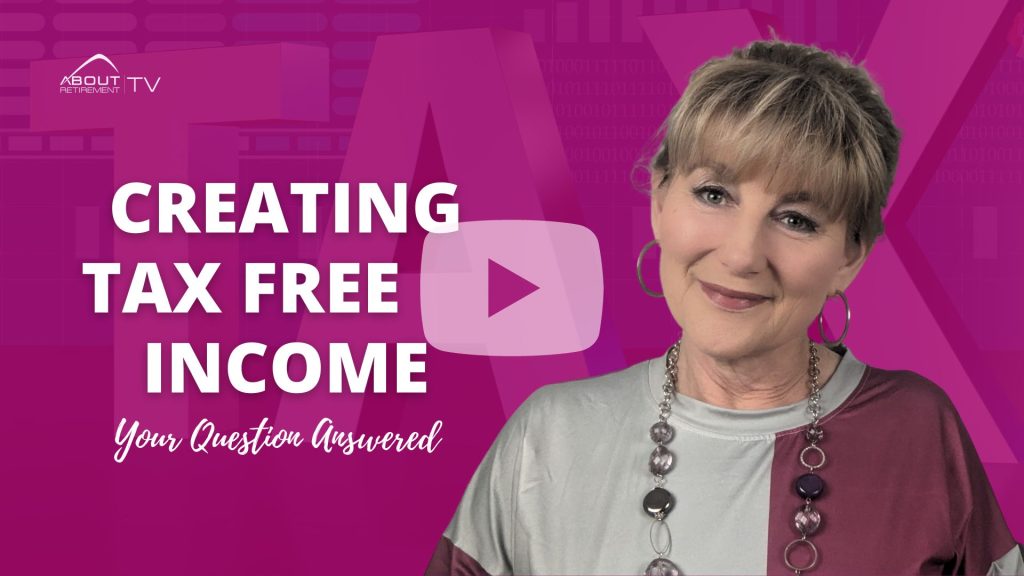
Creating tax-free income in retirement
I love preparing my videos and my articles based on questions I receive from clients, listeners, or subscribers, as they are more of the case study, a real-life situation, rather than just dry explanation of rules and regulations. Obviously to be able to make the best financial decisions, you need to understand the rules, legislation and what you can or cannot do, but I know it is easier to relate to the situational questions, as often a problem of one person is a problem that many other people have.
So today we will tackle the following question:
“Hi Katherine,
Please help me understand this. Say I have reached preservation age, and I convert my super accumulation account into an account-based pension, which I believe is tax free. I choose 4% withdrawal rate and I receive $40K.
I also have some personal share investment which pays me $15K a year including franking credits. Since $15K is within the personal income tax free threshold, does that mean I pay ZERO income tax?
Pretty good to have $55K income and pay no income tax. Thank you.”
Before I start unravelling our today’s topic, first in case you missed it, just a short notice to advice that from now on, my videos and articles will be coming out every second week, rather than weekly, mostly due to the time constraints and wanting to spend more time with my family.
OK, let’s get busy with our today’s question now, and let’s go through the question step by step:
1. I have reached preservation age – this is crucial to understand. If you don’t know what preservation age is, read this article: “Superannuation preservation age and preservation rules – your access to super explained” .
Please pay attention to the preservation age, because just reaching it, does not mean you have access to super, and most certainly you may not have a tax-free income stream. For example, if you were born on 1st March 1963, you reached your preservation age on 1st March 2023, with preservation age of 59, but if you met other conditions and you commenced an income stream, your income would most certainly not be tax-free.
2. I convert my super accumulation account into an account-based pension, which I believe is tax free – just as mentioned above, this is a good example when you could start an account-based pension, but not tax-free. In order for income to be paid to you tax-free, you need to be over the age of 60 and fully retired.
3. I choose 4% withdrawal rate and I receive $40K. – assuming you met all the conditions of release, it is correct the full $40,000 income payment is tax-free and is not included in any tax return.
4. I also have some personal share investment which pays me $15K a year including franking credits. This indicates to me a dividend received income of $10,500 with additional franking credits of $4,500.
Based on the above information, we have already established that income received from your account-based pension is not a taxable income, it is tax-free. Therefore, in this scenario, the only taxable income is $15,000 as a share dividend income.
If your personal tax rate is 0%, which clearly is the case in our scenario discussed above.
Therefore, the calculation for tax is as follows:

Therefore, as you can see, the calculation is correct, the full income of $40,000 from the income stream and $15,000 of dividend income comes to you all tax-free.
But please do not think this is the end of the story. Oh, no… the story is only now getting better and more exciting.
We have so called franking credits tax offset, and in this case, it is $4,500.
As the tax payable is $0, as listed in our table, you will actually receive the full $4,500 as a tax refund, being the excess credit refundable to you.
This is exactly why so many people and retirees and most SMSFs invest into Australian Shares, to get those very valuable shares with franking credits and legally reduce the level of tax payable on income earned from those Australian Shares.
I will prepare a separate full explanation of franking credits, as I believe to date, this is a very confusing type of income, and under-utilised by many, but it is so valuable and profitable, not to mention tax effective.
I hope you enjoyed this article, and it made you think twice about dismissing investing into Australian Shares, but if you do not feel comfortable how to choose your share investments, feel free to book a meeting with me to discuss this, together with any other retirement planning topic, that bothers you or you are unsure about.
By: Katherine Isbrandt CFP®
Money Strategist & Retirement Planner
Principal of About Retirement






